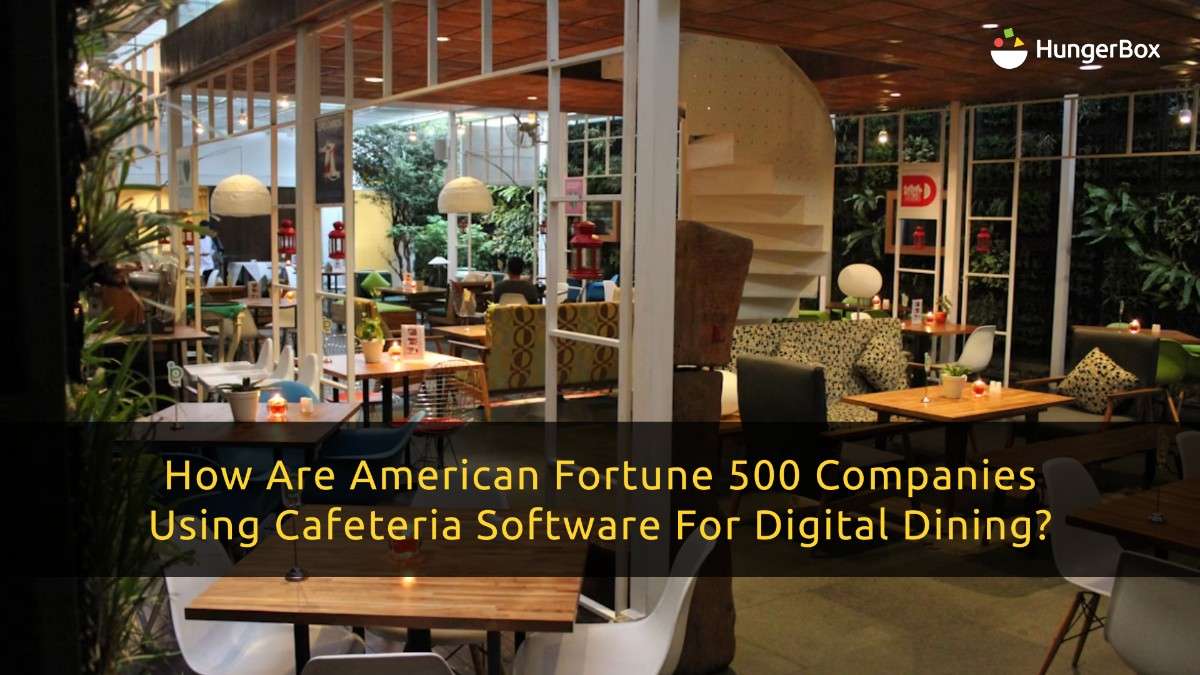
How Are American Fortune 500 Companies Using Cafeteria Software for Digital Dining?
Across corporate America, Fortune 500 companies are embracing a new digital standard, not just in how they work but in how they eat. As hybrid work models become mainstream, workplace dining is undergoing a technological transformation. Cafeteria software is now a critical part of operational planning, wellness initiatives, ESG reporting, and employee experience.
From Silicon Valley tech parks to East Coast finance towers, leading enterprises are replacing traditional food service with agile, data-driven cafeteria ecosystems. These platforms streamline food ordering, reduce waste, track wellness, and elevate dining into a measurable business asset.
To understand the technology behind this movement, visit Cafeteria Software by HungerBox.
Why Fortune 500 Enterprises Are Digitizing Food Service
1. Scale and Complexity Demand Automation
Fortune 500 companies typically run across multiple campuses, satellite hubs, and hybrid workforces. Managing food manually at this scale leads to overproduction, food safety risks, long queues, and employee dissatisfaction. Cafeteria software solves this by automating:
- Live menu displays and customization
- Attendance-based forecasting
- Vendor coordination and invoicing
- Feedback collection and analytics
- Nutrition labeling and allergen tracking
2. Compliance with Health and OSHA Guidelines
Workplace food safety is governed by a mix of OSHA, FDA, and state-specific rules. From contactless services to allergen disclosures, these regulations are easier to manage with digital systems that log, track, and audit operations.
3. Employee Experience as a Business Driver
Dining is now a key part of employee satisfaction. Fortune 500 employers use cafeteria software to enable:
- Mobile ordering and digital payments
- Meal slot selection to avoid crowds
- Personalized dietary options (keto, gluten-free, vegan)
- Wellness points integration for HR
Features that Fortune 500 Firms Prioritize in Cafeteria Software
Cafeteria software is not one-size-fits-all. These enterprises demand scale, integration, and intelligence. Top features they prioritize include:
- AI-based Meal Forecasting
- Slot-based Pickup Management
- Vendor Coordination Tools
- Nutritional Intelligence
- QR and RFID Integration
- Compliance Dashboards
Benefits Beyond the Dining Table with Cafeteria Software
1. Cost Efficiency
Traditional food service leads to high overhead, especially in hybrid offices where occupancy fluctuates. Fortune 500 companies using cafeteria software report:
- Lower procurement costs
- Reduced vendor errors
- Real-time cost-per-meal insights
2. ESG and Sustainability Goals
Companies are under increasing pressure to document sustainability. Cafeteria dashboards now include:
- Food waste reports
- Carbon footprint estimates
- Eco-friendly packaging data
3. Centralized Control, Decentralized Execution
With teams spread across cities or countries, centralized food policy becomes essential. Cafeteria software enables:
- Uniform menu governance
- Shared vendor performance metrics
- Real-time updates across all offices
To see how Fortune companies tailor food platforms to operations, Contact HungerBox.
Integration of Cafeteria Software with Enterprise IT Ecosystems
Digital dining doesn't live in isolation. These platforms now plug directly into enterprise IT ecosystems, including:
- HRMS platforms
- Calendar tools
- Finance systems
- Wellness apps
Fortune 500 companies leverage these integrations to ensure food services are embedded in the daily employee workflow.
Managing Change at Scale When Adopting Cafeteria Software
Rolling out new systems across massive organizations takes effort. Successful deployment of Cafeteria Software includes:
- Pilot launches in select offices
- Employee onboarding via lunch-and-learn events
- In-app surveys to gather early feedback
- Dashboards for facility managers and HR leaders
Data-Driven Improvement in Fortune 500 Cafeterias
What sets digital cafeteria platforms apart is their ability to evolve. Companies analyze:
- Peak dining times
- Least/most popular dishes
- Common feedback tags
- Inventory trends
- Real-time footfall
These insights inform vendor decisions, staffing, and wellness campaigns.
Post-Pandemic Necessity of Cafeteria Software
COVID-19 accelerated the shift toward safer, tech-enabled dining. Fortune 500 companies needed solutions that reduced touchpoints, improved health compliance, and adapted to sudden headcount changes.
Cafeteria software offered answers to all three. Now, even in the post-pandemic phase, these systems remain essential.
Future Trends in Cafeteria Software for Enterprises
Looking ahead, digital dining will evolve further across enterprise campuses with features like:
- Smart Vending Systems
- Gamified Wellness Menus
- Voice-Based Ordering
- Sustainability APIs
The Enterprise-Wide Impact of Cafeteria Software
Whether it’s HR driving engagement, facilities teams cutting waste, or leadership reviewing ESG metrics, cafeteria software serves every function.
It turns a once-operational process into a strategic tool that benefits:
- HR
- Operations
- Finance
- Compliance
The Future of Digital Dining in Fortune 500 Workplaces
Fortune 500 companies aren’t using cafeteria tech as a convenience; they’re using it as infrastructure. Cafeteria software is now central to how America’s top enterprises feed, engage, and support their workforce.
Ready to bring Fortune 500 efficiency to your workplace cafeteria? Download the App and power up your food experience.